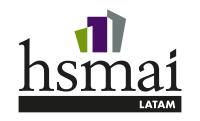Lori Kiel, Commercial Director, The Kessler Collection, HSMAI Sales Advisory Board Member
The HSMAI Sales Advisory Council recently met to discuss proactive sales, formerly known as "prospecting," in its most intimidating form. We asked the group to reflect on the following questions:
How can you prospect in a world of caller ID, email spam filters, and electronic proposals?
What is your customer base and how do you foster these relationships in a hybrid world?
The conversation was revealing. While the expectation was to discuss how to overcome obstacles to prospecting, what happened instead was a conversation about the ease of proactive sales in our new environments.
Cold Calling vs. Referral
The fear of prospecting twenty years ago was cold calling. You sat at your desk dialing random numbers and trying to schedule a visit. Success in this environment was based on the volume of calls you were willing to make, or rather, the number of rejections you were willing to receive.
Fast forward to 2023, and as the Sales Advisory Board noted, “The value of an introduction has increased exponentially; there’s no excuse not to introduce yourself to someone on LinkedIn.” LinkedIn allows you to search for people and showcase your connection to them through mutual networking. LinkedIn and other social media platforms have opened the door for sales managers to fish “where the fish are biting” by pitching online offers and requesting a formal contact. One board member further noted that “the only calls he takes are those referred to him by someone he knows.” The benchmark value returned sales to its original value proposition, prioritizing the relationship.
We are all sellers
Ask your employees to nominate companies they partner with and encourage them, as these are a source of “warm” leads.
Make it easier for the front desk to alert the Sales Department about potential leads. The front desk is excellent for business opportunities that already frequent the hotel. This business is another "hot lead," considering that the hotel experience replaces an on-site inspection.
Networking and free meals
Literally and figuratively, hotels are prime environments for salespeople to cultivate new and existing relationships. Inviting clients to lunch and chat after work is a way to encourage them to meet with you in a social setting. Best practices have been shared for allowing these clients to bring two or three of their colleagues (from within the company or industry) to join them, fostering greater engagement between you.
Keeping our salespeople active is a priority for sales leaders. Negotiating engagements was a common expectation many years ago, and it's re-emerging with an interesting strategy. Some sales leaders have returned to inviting clients to lunch and defining the number of in-person interactions. The definition of these engagements has changed with automation; however, the value of the activity remains the same, and we remain a relationship-oriented discipline.
Forming a new generation
The new, younger generation we're recruiting also behaves like our new customers. "We have to serve them where they are, and with automation." Beyond the formal definition of generations, this is a newly discovered preference for all generations who prefer to be sold in a social and automated world.
The use of technology and online platforms is just as essential as regular sales actions. Sales leaders must ensure that all online information is accurate. Your online presence speaks volumes about the quality of your company.
Finally, the importance of our virtual environments is fundamental to our presentation. Online impressions are often the first impression.
Lead the new sales organization.
The traditional sales organization has changed with technology. Finding the right balance within the team to manage technology and convert leads led to an organizational chart that values lead capturers (hunters) and those who close deals (closers). The volume of leads hotels receive requires someone to capture and qualify the offers and then deliver them to the salesperson for closing. Although a lead-ranking methodology exists, it has not yet been widely accepted. Salespeople want to decide if a lead is quality before rejecting them, despite the system's filters.
Speed in converting or closing a deal is critical for both the salesperson and the customer. The first to respond receives the booking. Previously, the salesperson handled the customer, the lead, and the booking, from prospecting to contract signing. In today's automated environment, dividing this process into multiple layers allows you to focus on quality, agility, and efficiency for both the customer and the salesperson.
To conclude
The HSMAI Sales Advisory Board reminds us that, regardless of timing or techniques, "Sales is about prospecting, offering what the customer needs, overcoming objections, and closing."



